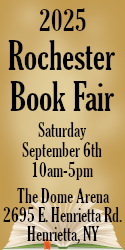Forgetting History
Many, if not most, booksellers are historians of a sort. Specialists in travel & exploration, science or first editions are obvious members of this class. Dealers concentrating on sports or even children’s literature also qualify: they research a box of apparent rubbish, only to find a pearl in that cardboard shell, a gem so precious that it demands hours of examination and study so that they can state with confidence that this diamond in the rough is just that—something glorious.
Such notions, however, invariably lead us (well, some of us) to recall the words of George Santayana: “Those who ignore history are bound to repeat it.” Or did it read “Those who forget the lessons of history are doomed to repeat it”? Perhaps he actually wrote “Those who cannot remember the past are condemned to repeat it.” I am fairly confident that it was the last quotation that reflects Santayana’s words. Toynbee probably used one of the aforementioned lines, and a thousand historians since turned to dust almost certainly expressed sentiments similar in tone to the words of Santayana. Which brings us to the American approach to history: forget it.
Many decades ago I had an interesting exchange with a young woman in Virginia and the discussion chanced upon the Civil War (or, in the minds of many, the War Between the States). I was astonished that while the lady in question had a couple of years of college under her belt, she could not tell me who won the war, nor even identify the century in which it took place. Ever the optimist, I did discern the glimmer of a silvery lining in that dark cloud: she was not likely to despise someone from Maine because his great grandfather had played a key role in defending Little Round Top at Gettysburg (you know…that big battle in Pennsylvania in 1863…the Gettysburg address,…Pickett’s Charge… I give up).
In some ways, it may not have been the young woman’s fault: her history instructors and teaching materials may have been atrocious. I recently glanced at my 16 year old daughter’s massive European history textbook: it was ghastly. It included ‘facts’ by the thousands, interconnected with adjectives, adverbs and, of course, the appropriate verbs. Where are the good writers of history, such as A.J. P. Taylor (R.I.P.)? Now he could write history and make it stand up and sing.
It would be irrational and silly, on the basis of one individual, to conclude that Americans as a group lack knowledge of history. Over the years, however, I have encountered more than a few such people, enough so that I feel comfortable (and slightly depressed) suggesting that, as a nation, Americans generally regard history as a bore. A far more powerful example of that lack of interest hit me several years ago when I took my Irish brother-in-law to the Museum of American History (check the name) in Washington, D.C. The museum was, not surprisingly, captivating. What struck me most, however, was that the Civil War was left out: nary a word about the most defining period in the re-creation of the United States. I asked one of the staff about this curious oversight but only received a shrug. At that instant, I thought the Republic was doomed to founder on the reef of comfortable ignorance. I was, of course, quite wrong.
What I failed to grasp was that if American society as a whole represented an exquisite extreme of ahistoricality (if the word does not exist, it should), there was the other extreme: the passion of those who seek not only to re-write history but, more important, to re-right it. The first group tends to write books of dubious distinction and doubtful scholarship (here I think first of ‘authors’ who seek out elaborate coded messages in the Bible, all without the benefit of knowing Hebrew, Latin or Greek). They tend to be harmless. More disturbing, on the other hand, is the second group: those individuals, groups or even nations that are profoundly afflicted by history and who see it as unjust. These are the elements who now and again are determined to correct the past, often through violence. Here I offer a corollary to Santayana: those who are obsessed by their past will destroy their future.
In the early 1970s, I worked for a year as a janitor/chief dish and bottle washer at a sorority in Seattle whilst attending graduate school. One day a new employee showed up. He was a handsome engineering student (with a slide rule attached to his belt…): I knew therefore that he was illiterate. When asked about my field of study, I explained my interest in the Ottoman Empire and the Balkans. He looked up and said “Oh, yeah, the battle of Kosovo in 1389.” I almost dropped my dish towel in astonishment. “How”, I asked politely, “did you know about that?” His answer was simple: “My dad is a Serb and he told me all about it.” Decades later, I served briefly in the Balkans and learned that he was typical of his kin. 1389 was a defining moment for many Serbs who seemed to relish focusing on that monumental defeat which snuffed out the kingdom of Serbia and left it under Ottoman control for centuries. It helps explain how or why many Serbs today are obsessed with keeping Kosovo under Serbian rule; it is the abiding symbol of a flawed past that cannot be forsaken or forgotten.
*
Other groups, however, use the past as a pretext for fomenting mayhem. It was probably in the 1970s (or the 1980s, I forget) that I heard a remarkable report by Alistair Cooke, who charmed millions of listeners at one time with his cogent weekly report to the United Kingdom called “Letter from America”. In this one broadcast, he expressed his horror at hearing an Armenian-American in California coaching his grandchild on the need to hate Turks. Underscoring all this was the growth of two radical Armenian groups—The Justice Commandos of the Armenian Genocide (JCAG) and The Armenian Secret Army for the Liberation of Armenia (ASALA). Both groups in the 1970s carried out dozens of assassinations of Turkish diplomats and their families in a twisted bid to somehow strike out at the grandchildren of the people who had slaughtered their ancestors in 1915.
However much modern Turkish scholars may skirt the issue, 1915 was the year in which Armenians in the Ottoman Empire paid a terrible price for the miscalculations of their political leaders who sought support from the Russians who were engaged in a bloody battle with the Ottomans during World War One. Some Armenian leaders thought the Russians would be their liberators: it merely served as the spark that triggered a terrible tragedy as the Ottoman rulers vented their wrath on an entire people viewed as traitors. The subsequent slaughter of hundreds of thousands of innocent people was unspeakable: it may have been 500,000, 800,000, or more than a million. We will not/cannot know and the precise number is arguably irrelevant. It was a catastrophe and one which, understandably, today’s Armenians throughout the world cannot forget when faced by governments in Ankara that simply deny it even happened. However infuriating that response may be, on the other hand, it serves no one well when that slaughter defines a society and hangs around its neck like an anchor forever causing it to seek to repair its history instead of creating a new one.
Trying to fix history is, of course, a work in progress throughout the world. In April 2004, Greek Orthodox Patriarch Bartholomeuw I accepted an apology from Pope John Paul II…for the slaughter of Constantinople’s citizens carried out by the Fourth Crusaders in 1204. For some people, this was justice finally served, even if it took 800 years. For others (and I may include myself in that group), it is a depressing sign of how a group of people can be obsessed with history to the point of neurosis.
*
Several years ago during a moment of introspection, I scribbled down what must be an old Chinese saying: anyone can be angry—for hatred, you need family. And in few parts of the world is that more true than the immortal/immoral rage between Israelis and Palestinians. Only linguistic and ethnic cousins could maintain the level of bile and selective memory (and amnesia) which drives both sides in this depressing tale.
I can, in some remote portion of my mind, understand why a modern German might want to rid him or herself of a terrible memory by denying the Holocaust: who would want that on their conscience? It is less understandable, however, for a Palestinian (and they are not alone) to reject history's account of what happened at Dachau. (unless, of course, they're trying to get even for Israeli denial of the Naqba). The Holocaust was, after all, a Christian European creation that had nothing to do with the Arab (or Iranian for that matter) Muslim world. Yet there is no shortage of radicals in the Middle East who denounce those who mention the genocide of European Jewry (no doubt as a way of undermining stated reasons for the establishment of Israel—but that's an entirely different essay). Most recently, a Hamas legislative official, Jamila al-Shanti, protested efforts of UN-administered schools in the Gaza Strip to introduce text books which discussed the Holocaust. Al-Shanti issued a statement which declared “Talk about the holocaust and the execution of the Jews contradicts and is against our culture, our principles, our traditions, values, heritage and religion.” (Washington Post, 2 Sept 09, page A11). Separately, the Hamas “spiritual leader” Yunis al-Astal stated that teaching Gazan children about the Holocaust would amount to “marketing a lie” and, as such, constitute a “war crime.” The Iranian leadership has not, of course, lagged far behind, and President Ahmadinejad has achieved dubious fame through his frequent public dismissals of the Holocaust. And, of course, there are no homosexuals in Iran…
Hamas is not alone in seeking to re-invent history. The Israel Ministry of Education is, according to the Washington Post (September 2, 2009), removing the word “naqba” (catastrophe) from Israeli Arab school books, when used in reference to the establishment of Israel. Other dark instances of Israeli actions against Palestinians (and others) are also glossed over from time to time. You can still find Israeli sympathizers who contend that the massacre of over100 Palestinian villagers in Deir Yassin by the Irgun, led by Menachem Begin, never actually happened—just one example of the more than 531 Palestinian villages that were systematically destroyed in 1948 alone, along with the slaughter of many of their inhabitants, according to Ilan Pappe, an Israeli historian. As for the bombing by the Irgun of the King David hotel in 1946, which killed 91 people…and I do not entertain any doubts that in the fullness of time, other stories of mayhem will also emerge. And on it goes.
*
In 1940, Prof. Kojiro Sugimori of Waseda University published a collection of editorials he had written between 1936 and 1940 in a book entitled “A New Internationalism (A Practical Philosophy of History).” Though often difficult to digest (and that may be due to problems in translating the Japanese into appropriate English), Prof. Sugimori offers a number of ideas which may strike modern readers as…odd. In an essay entitled “Totalitarians versus Democracy”, the good professor states the following: “However paradoxical it may sound, the Totalitarian States, rather than the Democracies, are taking the initiative in the historically inevitable movement of applying liberalism and democracy to the international aspects of life.” Mentioning Great Britain and the US, he decries their “selfish indifference toward the destiny of one’s neighbors”; Japan, on the contrary, had gone into China for noble reasons in his view: “Japan’s behaviour in Manchuria should thus justly be described as humanizing or socializing, very much for the benefit of the Chinese.” (And here, foolish me, I thought the slaughter of around 400,000 Chinese civilians and prisoners of war in Nanking was not very nice— apparently it was just Japanese liberalism in action…) In other essays, Prof. Sugimori suggested in essence that if a state could not make good use if its resources, it forfeited its claim to ownership of that land.
If the bread and butter of Prof. Sugimori’s ideology seems to turn history upside down, it does not mean that his philosophy was forgotten or ignored. In October 2008, Toshio Tamogami submitted an essay for a “True Modern History” contest sponsored by the Japanese APA Group. In his essay, he argued that the US had tricked Japan into attacking Pearl Harbor. He also wrote that “many Asian countries take a positive view of Japan’s wartime activities” (a test: name five Asian countries that enjoyed being invaded by the Imperial Japanese army. Name one.) Had Tamogami been a fisherman out of Honshu, no one would have cared much about his views. Since he was the Chief of Staff for the Japanese Air Force, however, General Tamogami’s thoughts rubbed a lot of people the wrong way, in particular the relatives of the 15 million Chinese, Korean, Filipino, Burmese, Vietnamese, and other people killed by Japanese forces in the Second World War. In view of strong foreign reaction, General Tamogami was forced to resign from his position. Somehow, I doubt that the consequences of his writing have compelled the good general to reconsider his view of Japanese history—his only regret is that Japan lost the war. There was, however, one small consolation: Tamogami’s essay won the grand prize.
Michael M. Pixley served for 22 years as a Foreign Service Officer in the U.S. Department of State, with 17 of those years overseas, primarily in Turkey and Iraq. He began his second career as a bookseller (Eastern Approaches Books, Annapolis, MD) in 1999, specializing in the Middle East.


























